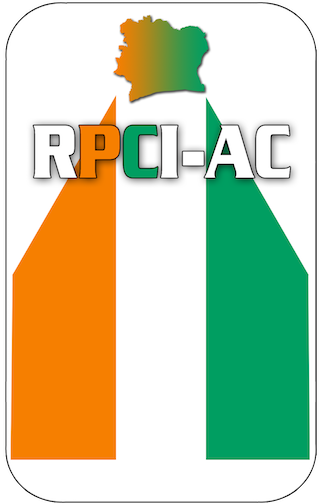"SPOTLIGHT ON THE INTERNATIONAL PRINCIPLES OF PROFESSIONALISM ETHICS IN CONTEMPORARY JOURNALISM"!
Le 08 avril 2013 par IVOIREBUSINESS - ETHICS IN CONTEMPORARY JOURNALISM!

First and foremost, i would like to underline the fact that the African Press as an institution
has been particularly vulnerable to every kind of pressure and machinations: As a result, power
brokers of all types have manipulated it to further their vested interests. It has been used to some extent as a tool to make and unmake Presidents in the whole Africa indirectly through Communication imperialism backed up indirectly by the "CIA" and other western influential medias, to ensure foreign domination of the national economy, to promote the continuing rule of the privilege class in "AFRICA", while people living at the bottom of the society are being stricken by poverty nowadays: It's evidently the crucial and sad reality of the whole african society today in a so called international system designed!
1-("INTERNATIONAL PRINCIPLES OF PROFESSIONAL ETHICS IN JOURNALISM").
The "UNESCO" has conducted consultative meeting with international and regional organizations representing some (400.000 working support for the "UNESCO" declaration on fundamental principles
concerning the contribution of mass media to strengthening Peace and International Understanding, to the promotion of Human rights and to Countering RACIALISM ,APARTHEID AND INCITEMENT TO WAR. They also came out with a common understanding of various principles of Journalistic ethics culled from existing codes and International legal instruments.
The following declaration is the output of the fourth "UNESCO" consultative meeting held in "PRAGUE"
and "PARIS" IN (1983). It embodies the sentiments of the following professional associations:"International Organization of JOURNALISM"(JOJ),"International Federation of Journalists"(IF),"International Catholic Union of press"(UCIP),"Latin-AMERICAN FEDERATION OF JOURNALIST"(FELAP),"LATIN-AMERICAN PRESS WORKERS"(FELATRAP),"FEDERATION OF ARAB JOURNALISTS"(UJA),"UNION OF AFRICAN JOURNALISTS"(UJA), and Confederation of ASEAN JOURNALISTS"(CAJ).
2-(PRINCIPLE 1): "PEOPLE' S RIGHT TO TRUE INFORMATION".
People and individuals have the right to acquire an objective picture of reality by means of accurate and comprehensive information as well as to express themselves freely through the various media of culture and communication.
3-(PRINCIPLE 2): "THE JOURNALIST's DEDICATION TO OBJECTIVE REALITY".
The foremost task of the journalist is to serve the people's right to true and authentic information through an honest dedication to objective reality whereby facts are reported
conscioustiously in the proper context, pointing out their essential connections and without causing distortions, with due deployment of the creative capacity of the journalist, so that the public is provided with adequate material to facilitate the formation of an accurate and comprehensive picture of the world in which the origin, nature and essence of events, processes and states of affairs are understood as objectively.
4-(PRINCIPLE 3): "THE JOURNALIST's SOCIAL RESPONSIBILITY".
Information in Journalism is understood as social good not as commodity, which means that the
journalist shares responsibility for the information transmitted and is thus accountable not only
to those controlling the media but ultimately to the public at large, including various social interests. The journalist's social responsability requires that he or she will act under all circumstances in conformity with a personal ethical consciousness.
5-PRINCIPLE 4): "THE JOURNALIST's PROFESSIONAL INTEGRITY".
The social role of the journalist demands that the profession maintains high standards of integrity, including the journalist's right to refrain from working against his or her conviction or from disclosing sources of information as well as the right to participate in the decision-making of the medium in which he or she is employed. The integrity of the profession does not permit the journalist to accept any form of bribe or the promotion of any private interest contrary to the general welfare. Likewise, it belongs to professional ethics to respect intellectual property and,
in particular, to refrain from plagiarism.
6-(PRINCIPLE 4):"PROMOTION OF A NEW WORLD INFORMATION AND COMMUNICATION
ORDER".
The journalist operates in the contemorary world within the framework of a movement towards new international relations in general and a new information order in particular. This new order, understood as an integral part of the new international economic order, is aimed at "DECOLONISATION" AND "DEMOCRATIZATION" of the field of information and communication, both nationally and internationally on the basis of peaceful co-existence among peoples and with full respect for their cultural identity. The journalist has a special obligation to promote the
process of democratization of international relations in the field of information, in particular by safeguarding and fostering peaceful and friendly relations among states and peoples.
"NOWADAYS, journalism has got a predominant responsibility by fostering Democratization, Equal rights and justice for the whole africans in the new millenium".
(YVES T BOUAZO)(the title , subtitle, slice of the intro, conclusion , follow up are from the staff-"IVOIREBUSINESS" )("official sources": The manipulated press by ROSALINDA PINEDA-OFRENEO)













